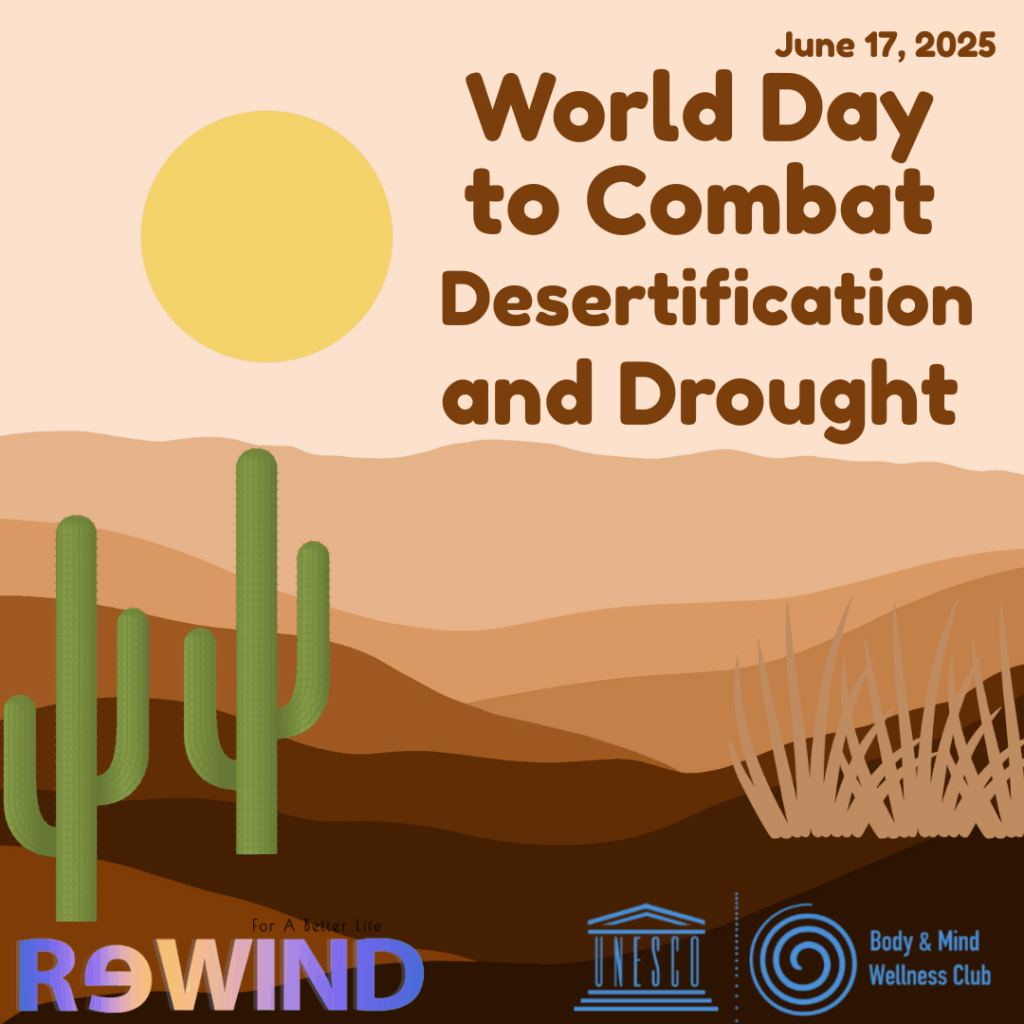
The Origin
Every year on June 17, the world observes the World Day to Combat Desertification and Drought (WDCDD), a United Nations initiative to raise awareness about the pressing issues of desertification, land degradation, and drought. These environmental challenges threaten the livelihoods of millions and have far-reaching implications for global food security, biodiversity, and climate stability.
In the 1992 United Nations Conference on Environment and Development, commonly known as the Rio Earth Summit, desertification was identified as one of the major environmental challenges alongside climate change and biodiversity loss. In response, the United Nations Convention to Combat Desertification (UNCCD) was established in 1994 as the sole legally binding international agreement linking environment and development to sustainable land management. Subsequently, in 1995, the UN General Assembly designated June 17 as the World Day to Combat Desertification and Drought, commemorating the adoption of the UNCCD.
Importance of the Day
Desertification and drought are not distant threats; they are current realities affecting over 40% of the world’s land area, impacting more than 3 billion people. These phenomena lead to the loss of arable land, reduced agricultural productivity, food insecurity, water scarcity, and forced migration. Moreover, land degradation contributes to climate change by releasing stored carbon into the atmosphere.
It emphasizes the importance of sustainable land management practices, reforestation, soil conservation, and efficient water use. The day also highlights the role of local communities, especially women and indigenous peoples, in land restoration efforts.
Theme of 2025
The 2025 theme, “Restore the Land. Unlock the Opportunities,” focuses on the vast potential that lies in rehabilitating degraded lands. Restoration efforts can lead to increased food production, job creation, enhanced biodiversity, and improved resilience to climate change. The UNCCD aims to restore 1.5 billion hectares of degraded land by 2030, which could generate up to $1.4 trillion in economic benefits annually.
This year’s observance will be hosted by Colombia, a country that has demonstrated a strong commitment to land restoration through nature-based solutions. The event will bring together governments, civil society, scientists, and the private sector to share knowledge, forge partnerships, and accelerate action towards land degradation neutrality.
Global Initiatives
Several global initiatives exemplify the concerted efforts to combat desertification and drought. The Great Green Wall, an African-led movement aiming to restore 100 million hectares of degraded land across the Sahel region by 2030. The Bonn Challenge, A global effort to bring 350 million hectares of deforested and degraded land into restoration by 2030. Land Degradation Neutrality Fund is a public-private partnership that finances sustainable land management and restoration projects worldwide.
These initiatives demonstrate the feasibility and benefits of land restoration, providing models that can be adapted and implemented further.
Despite the progress, significant challenges remain. A recent UN report indicates that 77.6% of the Earth’s land area has become drier over the past three decades due to human-induced climate change, leading to severe impacts such as economic loss, increased mortality, and forced migrations.
UNESCO BMW’s Involvement
Highlight the value of educating individuals and communities about climate change, particularly its connection to land degradation and drought. Encourage the active involvement of local communities in restoration efforts, fostering grassroots ownership, and practical impact. Demonstrating how restoring degraded lands contributes not only to environmental health but also to economic growth, food security, and resilience against climate impacts.
UNESCO BMW’s Vision
UNESCO BMW’s vision is to encourage eco-friendly practices, ecosystem protection, and sustainable business approaches, that contribute to a greener future for the planet and future generations. Through programs like the UNESCO Body & Mind Wellness Club, we inspire individuals to express themselves and encourage them to take part in nature engaging activities. We make sure that our commitment to transformative actions will ensure a sustainable and equitable future for all.
By: Ayesha Khalid
Sources:
- https://www.unccd.int/events/desertification-drought-day/2024
- https://www.un.org/en/observances/desertification-day
- https://www.unesco.org/en/days/desertification-drought-combat
- https://www.genevaenvironmentnetwork.org/events/world-day-to-combat-desertification-and-drought-2025/
- https://unescobmw.org/2024/06/06/desertification-and-drought/